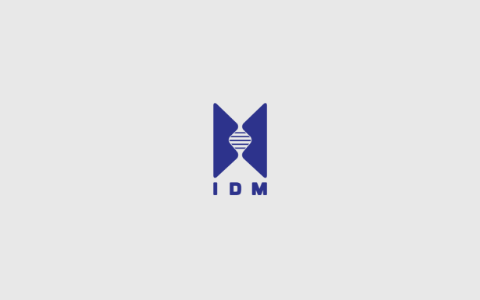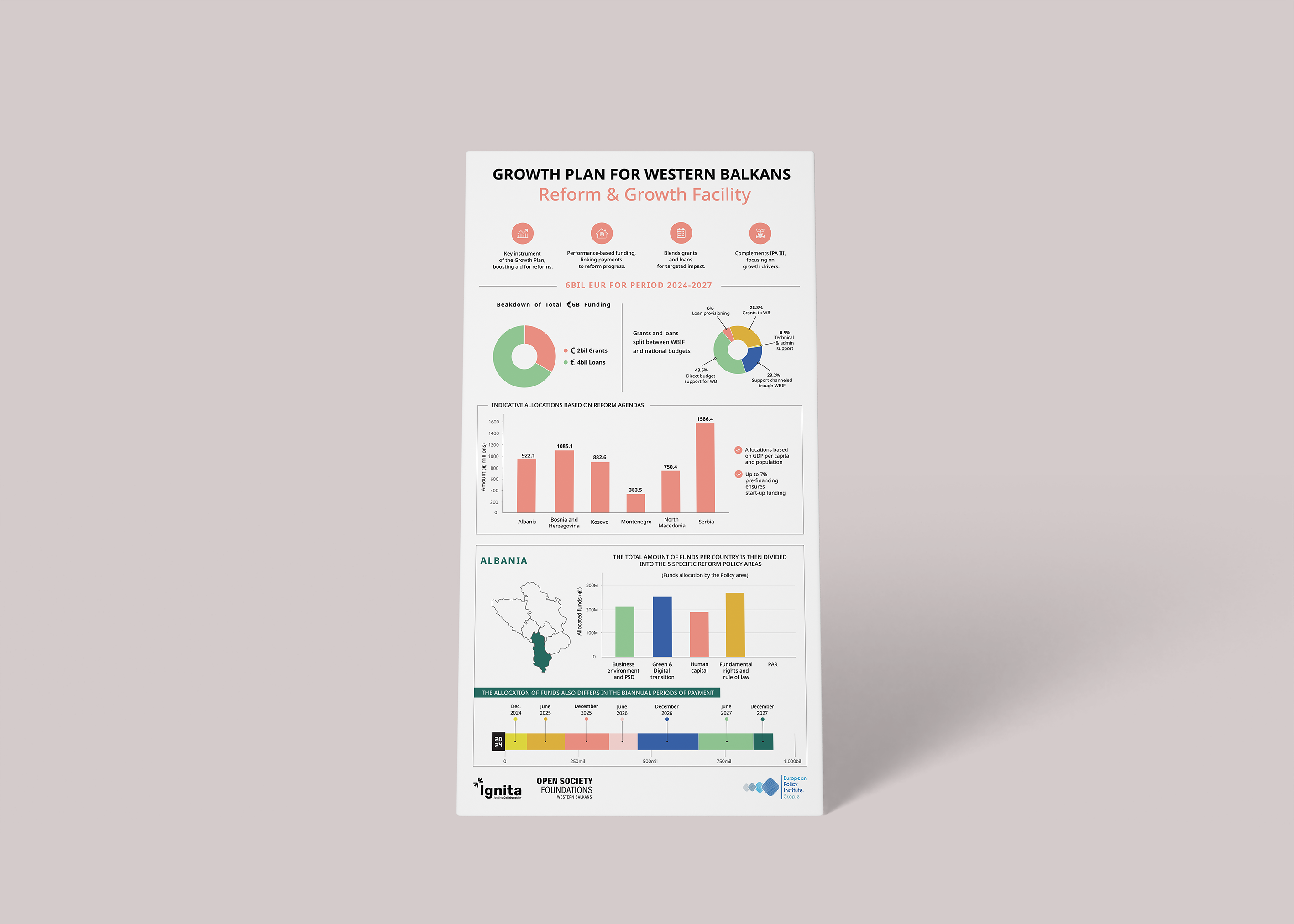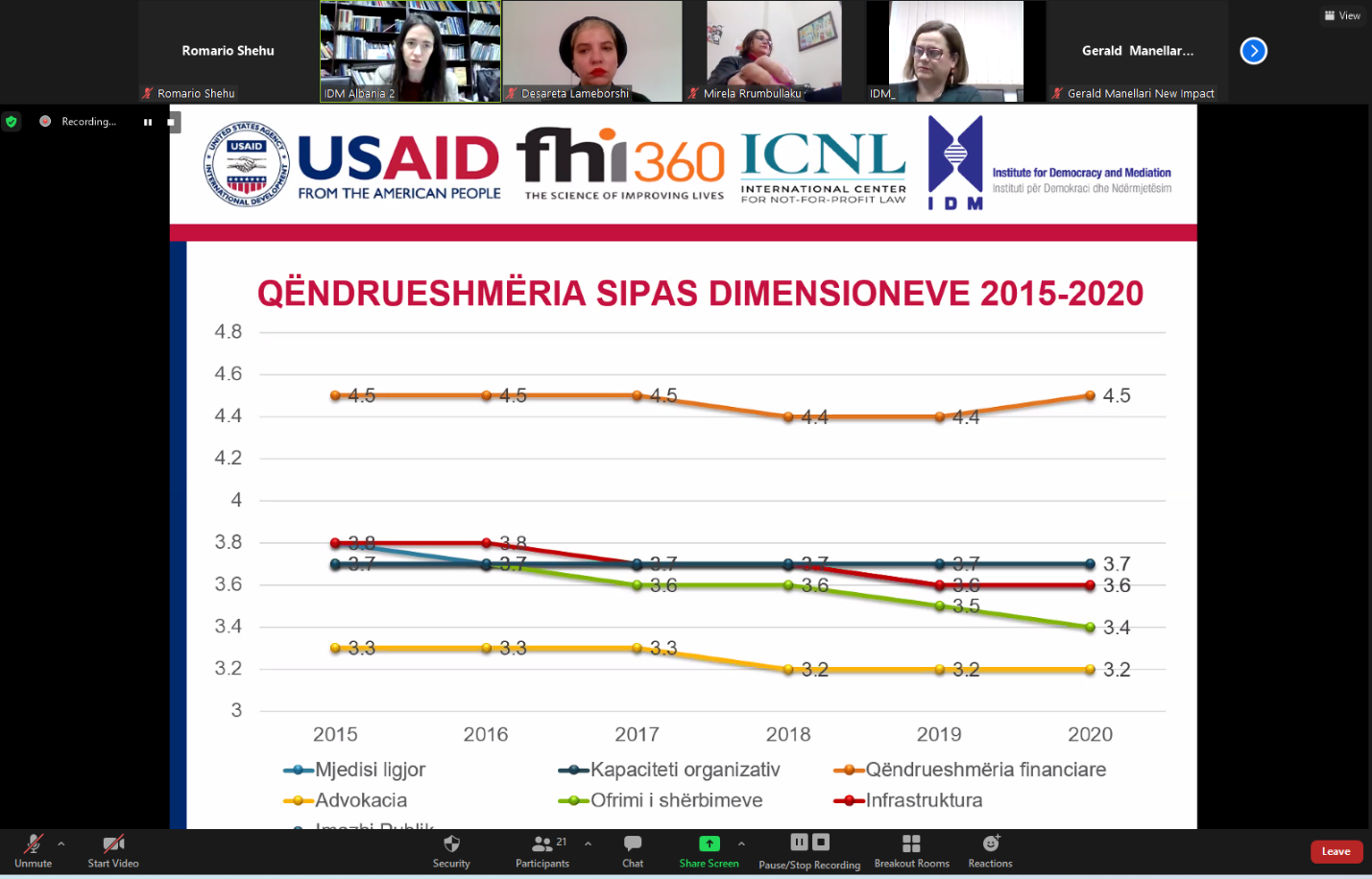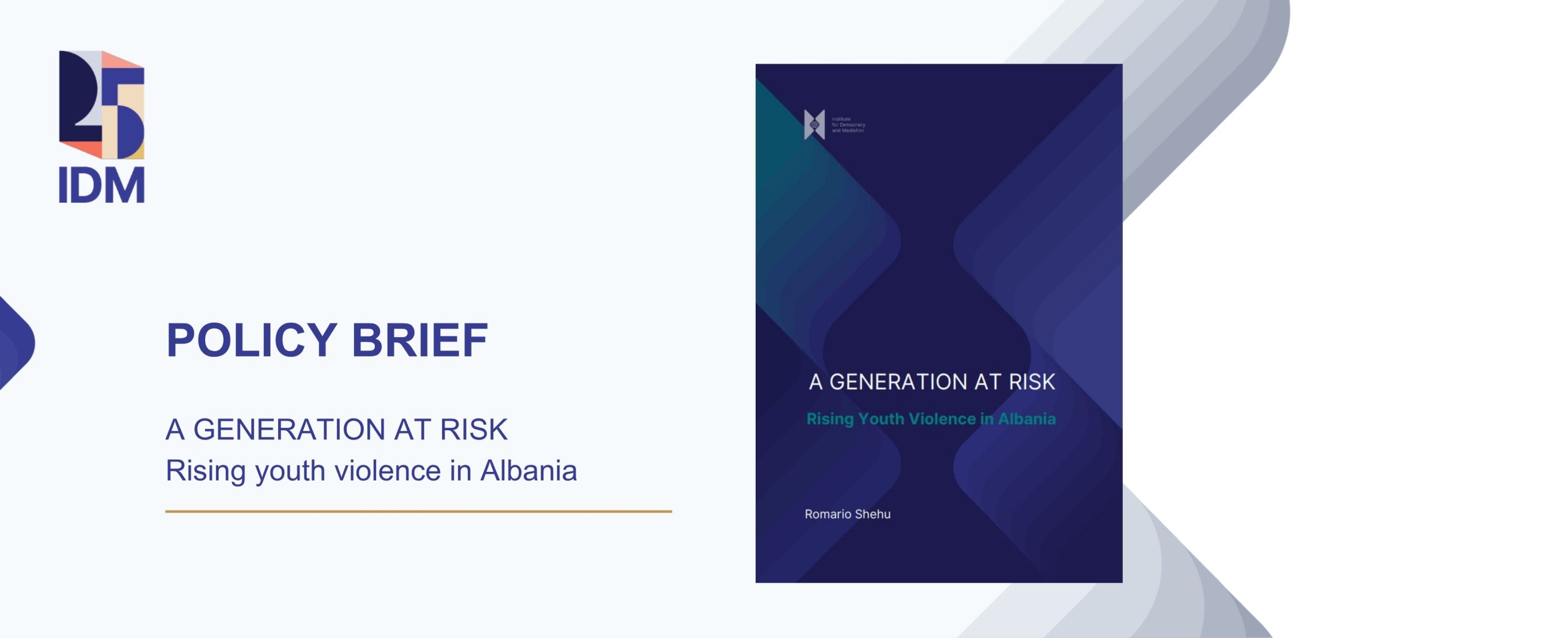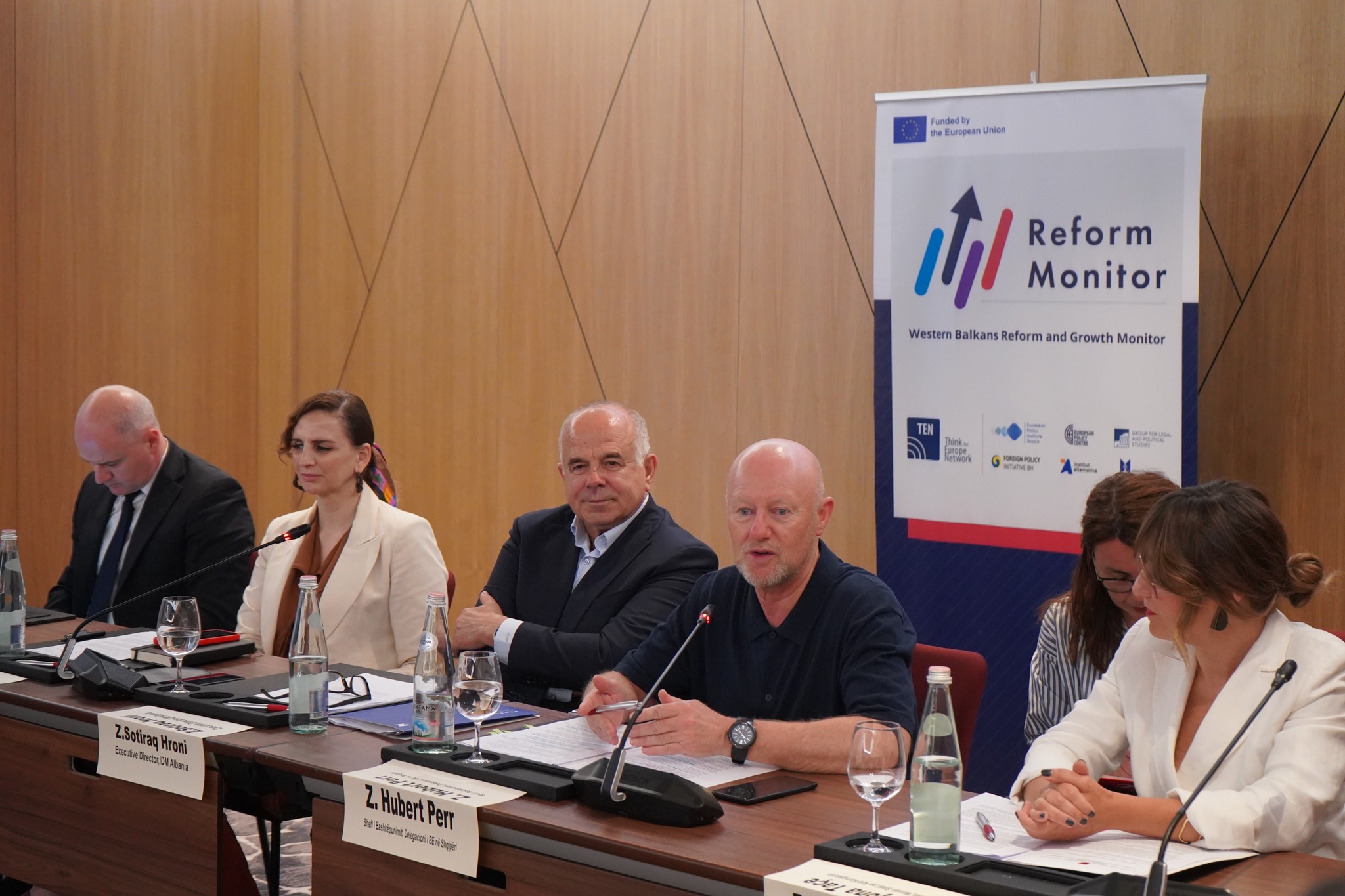The overall sustainability of the civil society sector did not change significantly in 2020. Among the seven dimensions of analysis, the report indicates that the financial viability worsened and the service provision slightly improved.
Tirana, November 25th, 2021 – IDM organized an online launching event of the findings of USAID CSO Sustainability Index (CSOSI) 2020 for Albania. The 2020 CSOSI for Albania is part of the twenty-fourth edition of the CSOSI for Central and Eastern Europe and Eurasia, monitoring key aspects of sustainability in the CSO sector. More than 20 participants from the civil society, donor community, public institutions, and media representatives joined the meeting and discussed the sustainability trends in the CSO sector.
The authors of the report presented key findings for Albania highlighting that the overall sustainability of the Albanian civil society sector did not change in 2020. CSOs’ financial viability worsened as there was a considerable regression in both the levels and types of funding available to CSOs. Despite facing a number of constraints, CSOs met the growing demand for services stemming from the COVID-19 crisis, resulting in an improvement in service provision. Other dimensions of sustainability remained largely unchanged. The main report’s findings related to other dimensions include:
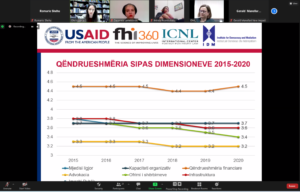
The legal environment governing CSOs did not change significantly during 2020. However, CSOs were directly affected by the legislation passed to combat COVID-19. Various draft laws that aimed to regulate the legal environment of CSOs in Albania were also introduced during the year.
CSOs’ organizational capacity remained largely unchanged in 2020. Despite the challenges posed by the COVID-19 crisis, CSOs took the initiative to respond to the increasing needs of their constituents during the pandemic. There was also a notable improvement in CSOs’ access to technology and use of various online platforms, which CSOs used to communicate with their constituents and stakeholders. However, the pandemic also had some negative effects on aspects of CSOs’ work, as the operations of CSOs were paralyzed, weakening the ability of CSOs to reach their projected goals. In addition, small and remote CSOs had difficulties in adapting to being cut off from their constituencies, switching to a digital format, and accessing funding, thereby threatening their sustainability.
CSOs intensified their advocacy activities in response to the challenges and difficulties that 2020 posed, although the final results of their efforts to influence public policy, legislation, and public opinion were limited and restrained by the pandemic itself.
The infrastructure supporting the CSO sector did not change notably in 2020. Although more trainings were organized during the year, they were mostly online, which limited their effectiveness as many participants were not accustomed to online tools, small CSOs from remote areas had less access, and interaction among participants was limited.
The CSO sector’s public image did not change notably in 2020, with both positive and negative developments noted during the year.
Representative of the Agency for the Support of Civil Society, Ms. Desareta Lameborshi in her welcoming note explained that 2020 was a difficult year due to the COVID-19 pandemic. “The year (2020) marked the lowest level of public funding available to CSOs in the last five years because nearly 40% of the budget allocated for ASCS’ calls for proposals in 2020 was reallocated at the onset of the COVID-19 outbreak to other entities.”
Invited panel members from Code Partners, Civic Resistance, and LëvizAlbania, shared their perspectives on the trends in the sector and main development affecting CSOs sustainability. Their presentations, focusing on the challenges and setbacks to CSOs sustainability as well as success stories, generated participants’ interest in the various dimensions of CSO sustainability. In addition, they provided very useful insights on the latest dynamics and development in the CSO sector that need to be considered in the process of CSOSI report preparation for 2020.
Click below to download the CSOSI 2020 Report in English / Albanian & Factsheet in English / Albanian.
IDM has partnered with USAID, ICNL, and FHI 360 to produce the CSOSI 2020 for Albania since 2010.


